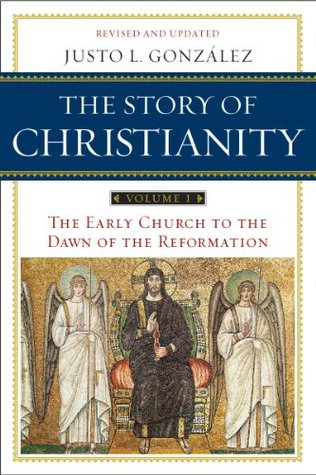More on this book
Community
Kindle Notes & Highlights
Read between
August 11 - October 9, 2017
Christendom was growing weary, and that if the two rival popes did not end the schism, others would.
the Roman cardinals broke with their pope and began their own negotiations with the Avignon party.
The conciliar movement, which had been developing over the years, was about to see its day.
the conciliar movement, hoped both to heal the schism and to put an end to such corrupt practices as simony and nepotism without substantially challenging accepted Christian dogma.
there were many who hoped that a universal council could destroy the great evils of the time, both by restoring unity and by reforming the church.
who had authority to call an ecumenical council.
This difficulty was solved when the cardinals of both parties, weary of the popes’ refusal to negotiate, issued a joint call to a great council that was to gather in Pisa in 1409.
When the council finally gathered in Pisa, it had the support of both colleges of cardinals, as well as of most of the courts of Europe.
the two earlier claimants to the papacy refused to accept the decisions of the council, and therefore now there were three popes.
After passing some decrees for the reformation of the church, the council took steps for the election of a new pope.
the council found that it could do little more than issue some fairly general decrees.
By then the council, which at first had attracted little notice, had become the center of attention, and seemed to have gained supremacy over the pope.
the conciliar movement, which had ended the papal schism, had resurrected it.
it was clear that the papacy had won, and that from that time councils would be subject to it,
there were other movements that sought to reform, not only the life, but also the doctrines, of the church.
He had strong support among his colleagues,
It was the time of the papacy in Avignon, which was at the service of French interests and therefore created resentment and resistance in England.
According to him, all legitimate dominion comes from God. But such dominion is characterized by the example of Christ, who came to serve, not to be served.
any supposed ecclesiastical authority that collects taxes for its own benefit, or seeks to extend its power beyond the sphere of spiritual matters, is illegitimate.
his logic led him to point out that what he had affirmed regarding the limits of ecclesiastical dominion was also true of civil power.
he began teaching that the true church of Christ is not the pope and his visible hierarchy, but rather the invisible body of those who are predestined to salvation—a
Toward the end of his life, Wycliffe declared that the pope was among those who were probably reprobate.
the Bible ought to be put back in their hands, and in their own language.
the point at which Wycliffe’s doctrines aroused most controversy was his understanding of the presence of Christ in communion.
Wycliffe rejected this because he saw in it a denial of the principle manifested in the incarnation.
Wycliffe was declared a heretic by many at Oxford,
his prestige was such that he was allowed to continue his studies and his writing.
Wycliffe was accused of having instigated the revolt—which he apparently did not.
ten of Wycliffe’s tenets were declared heretical, his writings were placed under the ban,
Wycliffe’s prestige was such that he was able to retain his parish, and was not excommunicated.
the Council of Constance subsequently condemned him, and his remains were disinterred and burned.
there was soon a substantial number of people who held beliefs similar to those of Wycliffe, and who set out to translate the Bible into English and to preach their understanding of the Christian faith.
In spite of constant persecution, Lollardism never disappeared.
It was a time of increasing nationalism among Czechs, who generally resented what they considered the excessive influence of Germans in their country.
These writings caused a great stir at the university,
Huss in particular, while defending scholars’ rights to read and discuss the works of Wycliffe, disagreed with him on the question of the presence of Christ in communion,
Huss was advocating a reformation similar to what the conciliarists of his time were proposing.
Huss was continuing a movement that had deep roots among the Czech people,
Since the Chapel of Bethlehem did not fall in any of these three categories, the papal decree practically amounted to silencing Huss.
Huss decided that he could not obey, and continued preaching.
the papal sentence had little effect.
the conflict with the Pisan papacy led Huss to more radical views.
he declared that an unworthy pope is not to be obeyed.
A pope who does not obey the Bible is not to be obeyed.
Huss, who had bought an indulgence twenty years earlier, by then had come to the conclusion that only God could grant forgiveness, and that to sell what comes only from God is usurping God’s power.
continued writing on the need for reformation.
The great council promised to be the dawn of a new age for the church, and therefore Huss could not refuse the invitation.
Huss was taken to the papal consistory and ordered to recant his heresy.
The emperor protested against this violation of his safe-conduct.
He insisted that he had never held the doctrines of which they accused him.


